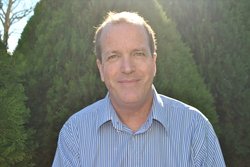Sitting at the keyboard produces a certain way of thinking for me. The keys are there, my fingers are there, and my muscular desire is to make the two work together. When I’m at the keyboard, I think like a writer, a producer of words, sentences and stories. It’s almost like being in that chair atthat desk in front of that screen starts that muscular memory of writing. It’s hard to escape.
However, one of my favourite parts of writing is the time spent away from the keyboard. The story is still in my head so I remember what characters are doing and what their particular goals and problems are at that particular point in the story. However, I’m not at the keyboard. I’m somewhere else: walking in the local park, doing the dishes, driving, running, showering, sitting on the train. In these situations, without the story in front of me, demanding me to think like a maker of words, the making machine drops down to Idle and all the thoughts bound up in time and logic and orderly sequence with it. In its place, another curious mental device spins up to speed. This is the what if engine. Freed of the need to create, it ponders, muses and hypothesizes instead. What if character A was a child instead of an adult? What if character C had the ability to fly? What if swords had memories? What if character G couldn’t remember anything without a picture or words to remind him?
At this time, at least for me, it’s really critical to do three things. Firstly, I need to get all these rather drifting, insubstantial what if thoughts onto paper as quickly and in as much detail as possible. They float away otherwise. Secondly, I must not look at the story until that first process is done or I get caught up in the real story and it overpowers the new thoughts and images. Thirdly, accept everything and reject nothing. Strangely, wonderfully and often serendipitously, these mental images and tastes and colours are often representations of what the book wants at some point in the future. Even though they may not mean anything or connect logically now, the chances are that they will in the future.Then, when all these ponderings are written down, they become real, which means they are not going to drift away, so I am then able to leave them to percolate, marinate and filter into the real story.
It sounds cliché, but the story often develops a will and direction of its own. It knows where it wants to go, and these what if thoughts are often unconscious expressions of the story planting its own seeds in my mind. Even if this doesn’t work, the freeing up of the what if engine is a liberating one and good for the writing and creative process.
Is all of this true, or is this just some metaphysical ramblings? For Nine Planets, my debut, I was astonished at how this above process produced some of the most surprising parts of the novel. For my other three (as yet unpublished) novels, I’ve been aware of the same process as well.
Central to everything is the idea of wild, extravagant untrammeled creativity. Be afraid of no idea. Think wide and free.
///////////////////////////////////
ABOUT THE BOOK
In the world of despair, Father Nick’s Day is the only hope…
Peter Blackwell wakes from a coma into a world he doesn’t recognize. Without memory or identity, all he has are nine random images. Nine planets. Eight he can see, although he does not understand them, but the impenetrable ninth is the secret that two opposing and hidden brotherhoods have been seeking for nearly two millennia. Pursued, betrayed, Blackwell has twelve days to unlock his Ninth Planet and prevent terminal worldwide suicide. And his only ally is a manic assassin sent to extract the secret and kill him.
NINE PLANETS is a debut Christmas-themed science fiction thriller from an Australian author.
Find out more on AMAZON.
Greg Byrne is an English teacher, grammar consultant, and lecturer. He enjoys exploring places, ideas, history, languages and science, dinners with friends, watching his family grow, and living life’s great adventure. His next projects are a young adult thriller with a twist, developing a grammar teaching system for schools, and writing a grammar text for ESL students. He lives in Perth, Western Australia, with his beloved wife and family and an overweight British Blue.


